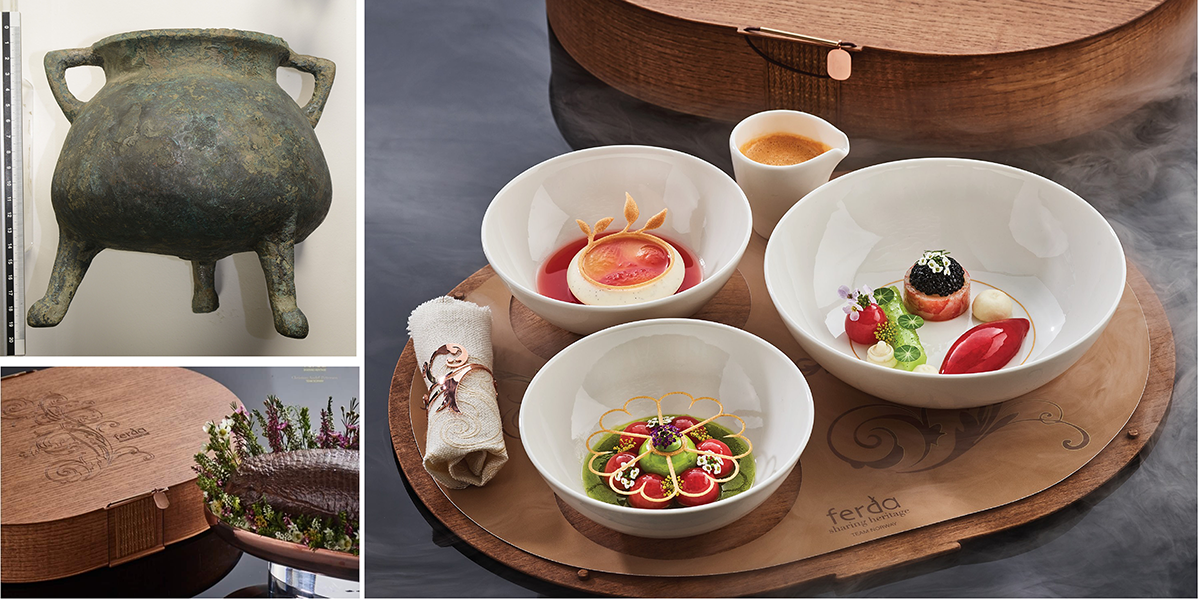the conference is fully booked
The availability of resources, knowledge and knowhow as well as present social structures are all contributing to unique local food cultures in the world. Food is both multisensory and intangible. Scholars in the field of food studies now provide new knowledge of local food cultures of the past. At the same time, the food value chain is focusing on creative use of past food culture, taking food heritage into the future.
Although interest in food history has increased in recent years, it is still an under-researched, under-used and under-communicated field. Through this conference, the ambition is to contribute to new and valuable knowledge, as well as mobilise exciting cooperation and knowledge transfer across disciplines. We will create a meeting point for contemporary and historical food studies by bringing together scholars from sociology, archaeology, anthropology and history as well as representatives of the value chain in food production.
The conference is hosted by the research projects "The impact of food culture in Medieval towns" (FOODIMPACT) at the Museum of Cultural History and "Culinary heritage as a resource in developing “Food Nation Norway 2030" (FoodLessons) at OsloMet – Oslo Metropolitan University, financed by The Research Council of Norway.
Program
Monday September 5 |
|
| 8.30-9.15: | Registration and coffee |
| 9.15-9.45: |
Opening by Håkon Glørstad, director of the Museum of Cultural History, University of Oslo. Welcome and conference presentation by Annechen Bahr Bugge and Marianne Vedeler |
Session 1: The History of Foodstuffs |
|
|
9.45-10.10: |
Meriel McClatchie, S. Flavin, E. OCarroll, C.Taverner, F.Beglane: Food cultures in post-medieval Ireland: new findings from the FoodCult project |
| 10.10-10.35 | Jenny Berntsson: Culinary heritage by the Kukkola rapids. Local food culture from past to future |
| 10.35-11.00 | Margrete F. Simonsen: Pre-industrial Aquaculture and the taste of Fish |
| 11.00-11.15 | Coffee and fruit |
| 11.15-11.40 | Christian Rødsrud: Halibut fishing in the Viking period |
| 11.40-12.05 | Per Norseng: The use and production of salt in Norway c. 1200-1600 with focus on the preservation of fish |
| 12.05-12.30 | Silje Hårstad: The Daily Grind – Food Production and Consumption at a Medieval Farm in Lindesnes, Agder |
| 12.30-13.30 | Lunch, with short introduction to the "Oslo breakfast" by Inger Johanne Lyngø |
Session 2: History of Meals and Material Culture |
|
|
13.30-13.55 |
Matilda Marshall: Collective food storage – lessons from the mid 20th century |
| 13.55-14.20 | Grethe Bjørkan Bukkemoen: Food and identity in times of transition. Changing culinary practices in Iron and early Viking Period Norway |
| 14.20-14.45 | Mathias Blobel: Remains of the Whey – Food and Society in a Medieval Western Norwegian Town Through the Lens of Pottery and Soapstone |
| 14.45-15.10 | Ragnhild Hutchison: "Take away-dinners" – changes in Christiania's eating habits from the late 18th to the early 19th century |
| 15.10-15-35 |
Iver B. Neumann: The Diplomatic Meal |
| 18.30 | Cider demonstration and talk by Bernt Bucher-Johannessen, HANEN –Working for Norwegian Cider |
| 19.15 | Conference dinner at Handwerk, Tøyen manor house |
Tuesday September 6Session 3: Food Innovation and Identity |
|
|
8.30-8.55 |
Theano Moussouri, Georgios Alexopoulos and Diana Rahman: Co-creation and local community empowerment as drivers for promoting innovation and sustainability in food cultures |
| 8.55-9.20 | Åsmund Bjørnstad: From grains to tastes |
| 9.20-9.45 | Anneleen Kool, Irene Teixidor-Toneu & Karoline Kjesrud: Angelica archangelica, from Viking vegetable to Nordic delicacy – on safeguarding traditional knowledge in botanic gardens |
| 9.45-10.10 | Faste Gunnarsen Grodt: Shaping the local food capitol through 300 years |
| 10.10-10.30 | Coffee and fruit |
| 10.30-10.55 | Sara H. Jensen: An acquired taste – why use food in the museums? How to use food in the museums! |
| 10.55-11.20 | Sofie Scheen Jahnsen: The role of food and foodways in the pursuit of an inclusive, diverse and open museum |
| 11.20-11.45 | Kwiatkowski et al: Tradition and Innovation: The Opportunity for Growth of Artisan Food Producers |
| 11.45-12.45 | Lunch |
| 12.45-13.30 | Anneleen Koohl: Guiding in the herb garden |
Session 4: Food Culture and Sustainability |
|
|
13.30-13.55 |
Hennie Fisher and Gerrie du Rand: Could South Africa’s historical food culture inform a sustainable future food system? |
| 13.55-14.20 | Lars Marius Garshol: Beer brewing: A crucial, but under-studied tradition |
| 14.20-14.45 | Julia C. Carrillo Ocampo: The wild arctic char – from lake to plate. How can the wild arctic char, from lake to plate make visible the complexity of sustainable gastronomy? |
| 14.45-15.00 | Summing up and farewell |
Abstracts
Contact the Organising Committee
- Marianne Vedeler, professor at the Museum of Cultural History, University of Oslo
- Annechen Bahr Bugge, research professor at OsloMet – Oslo Metropolitan University, Consumption Research Norway (SIFO)
- Anneleen Kool, Associate Professor at the Natural History Museum, University of Oslo
- Inger Johanne Lyngø, researcher at OsloMet – Oslo Metropolitan University, Consumption Research Norway (SIFO)
